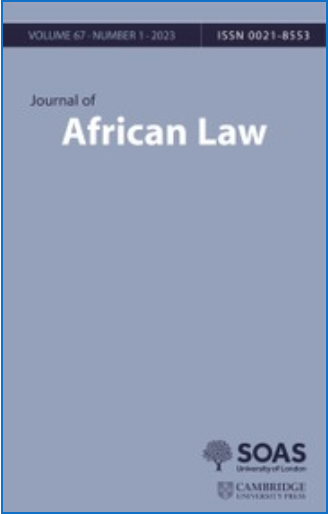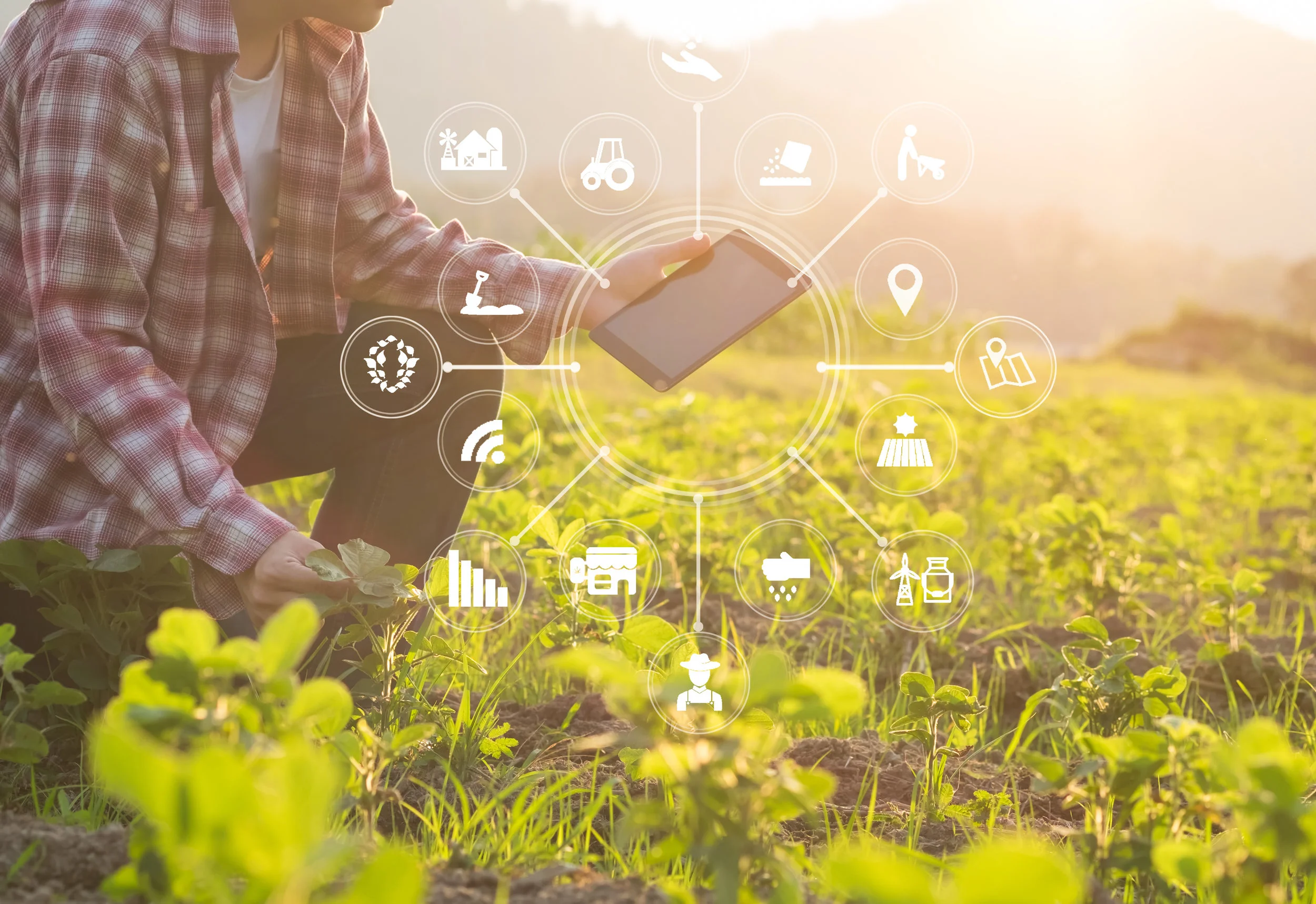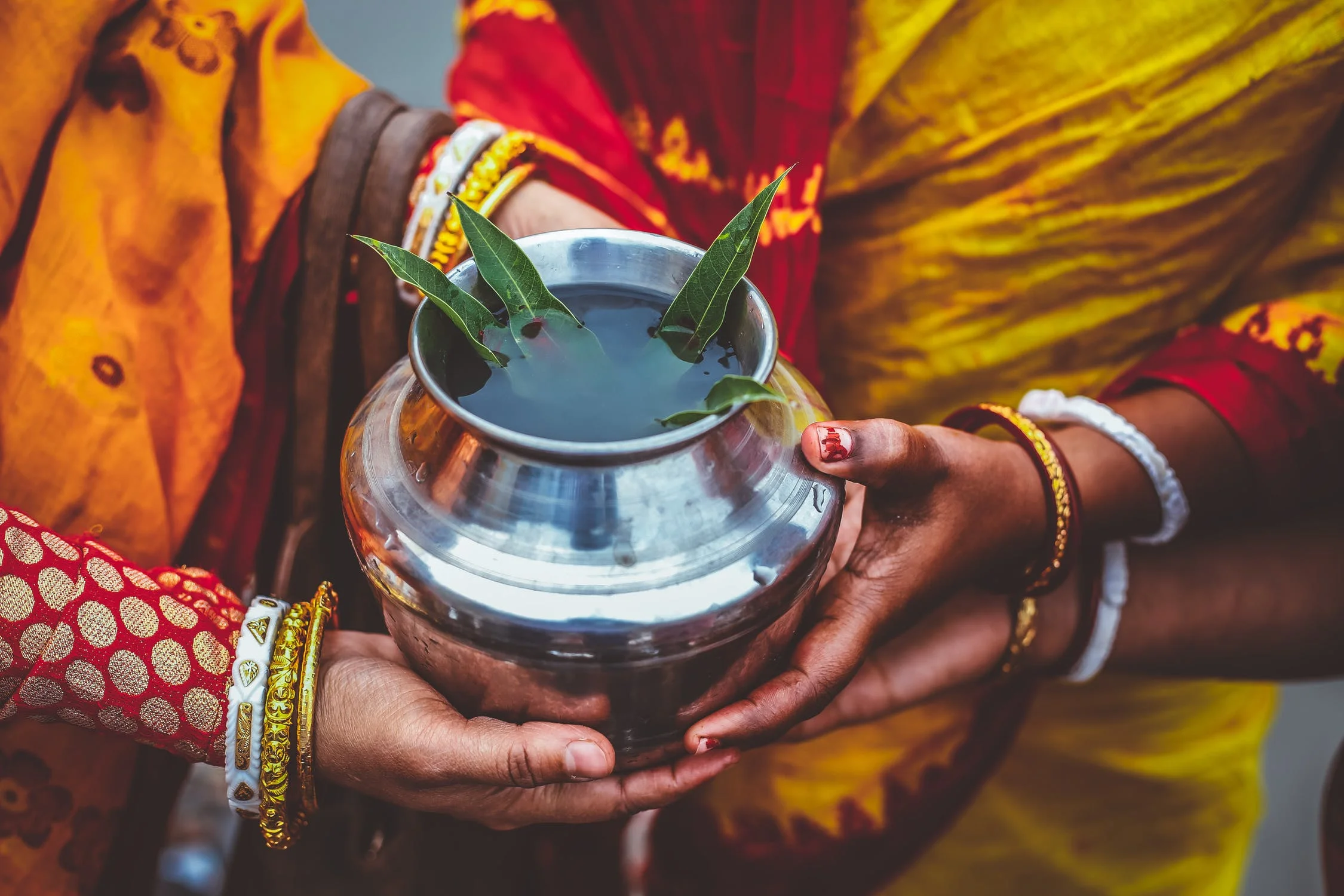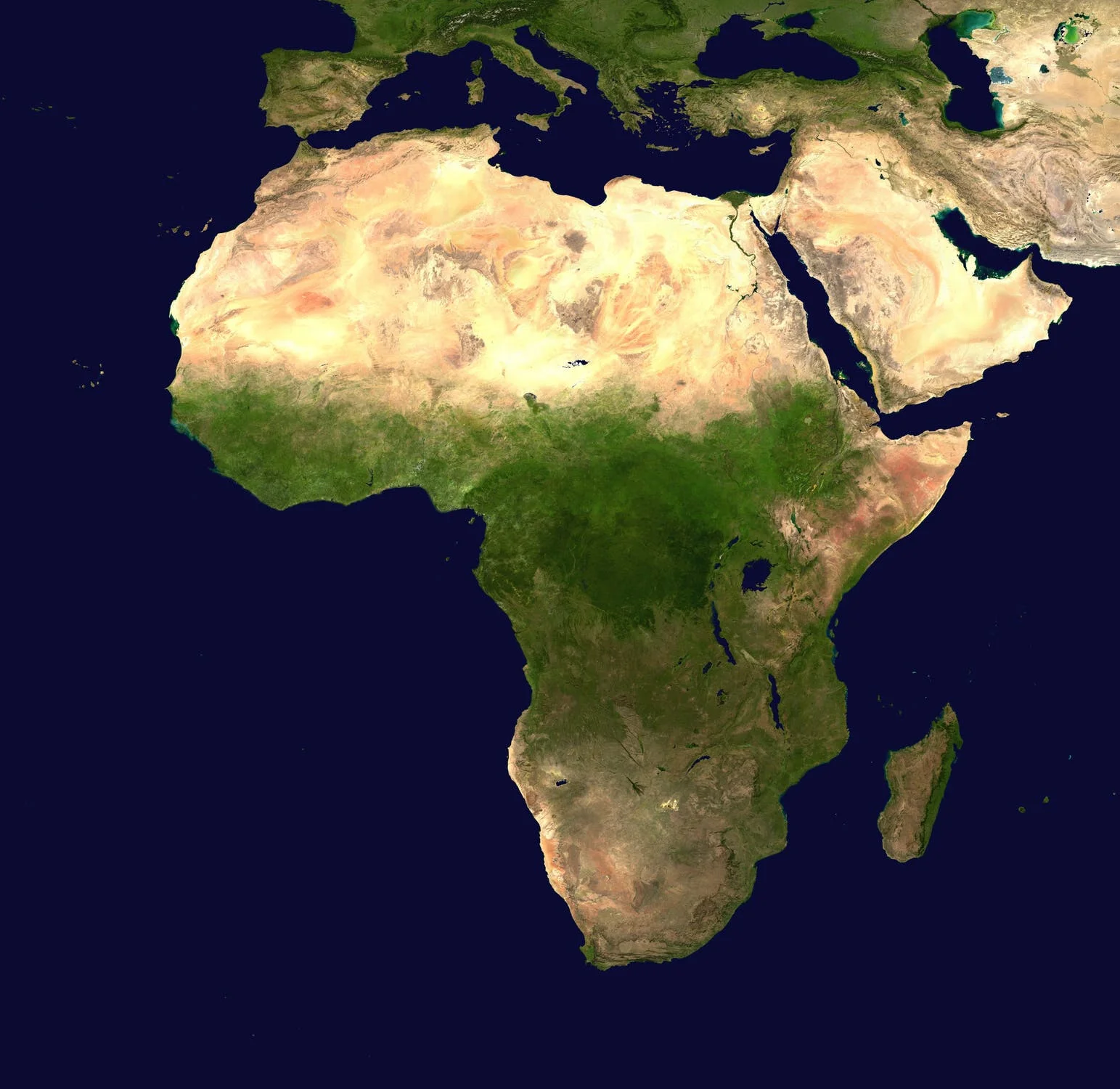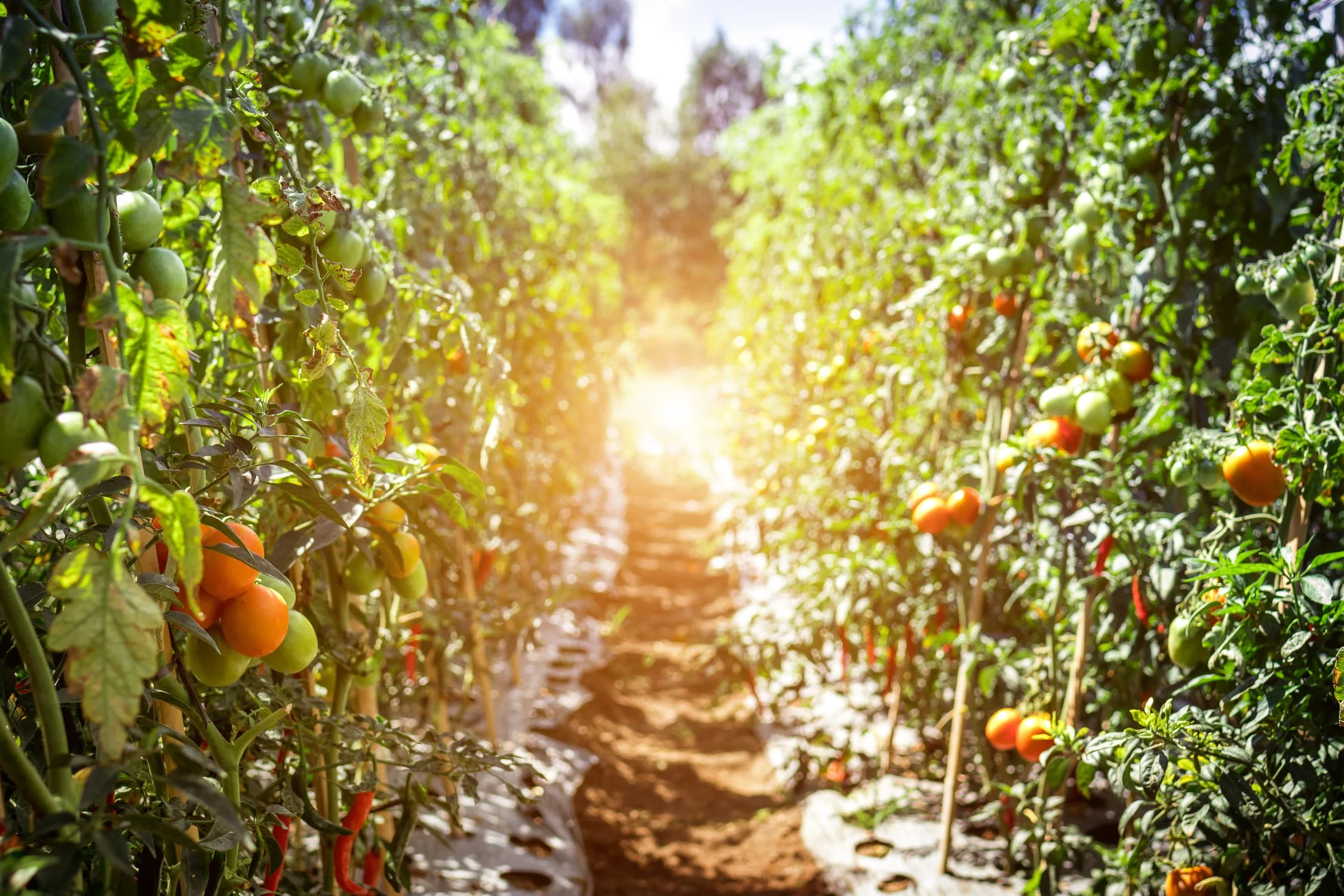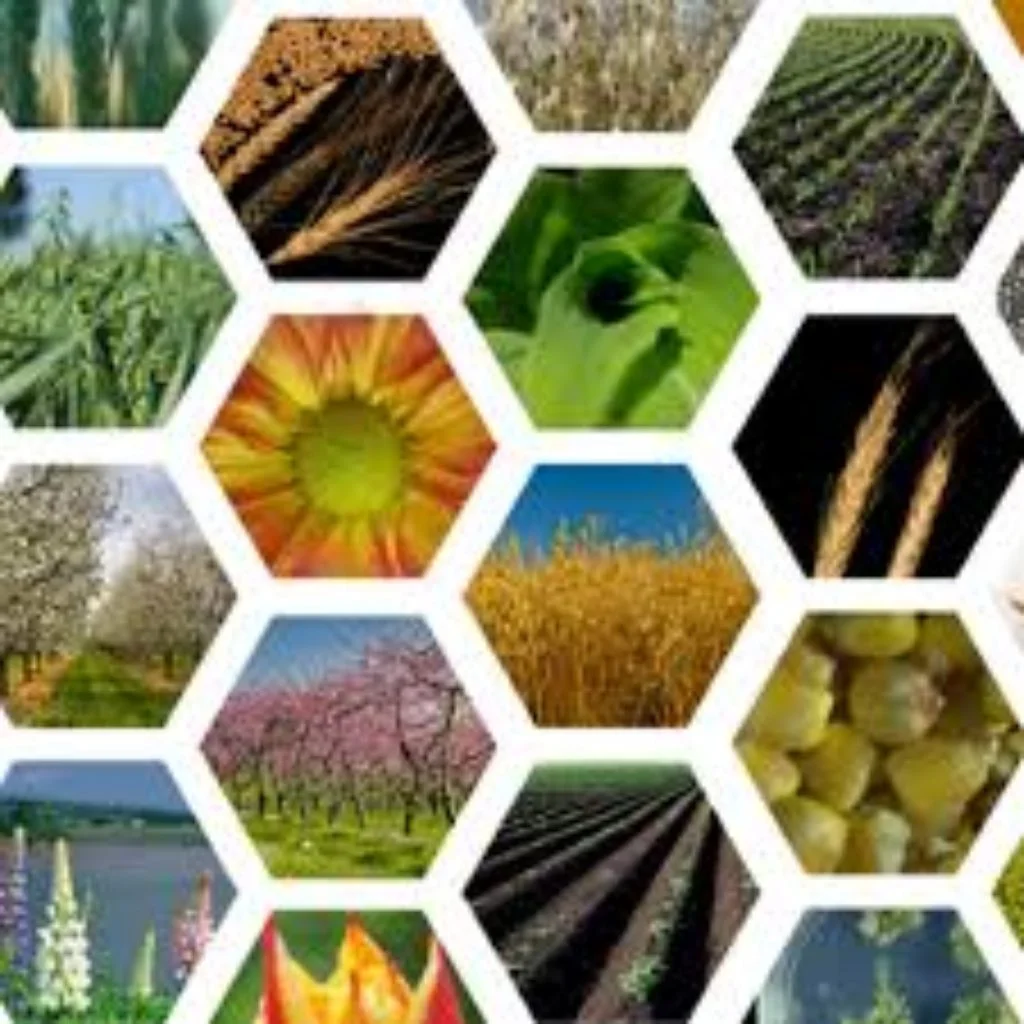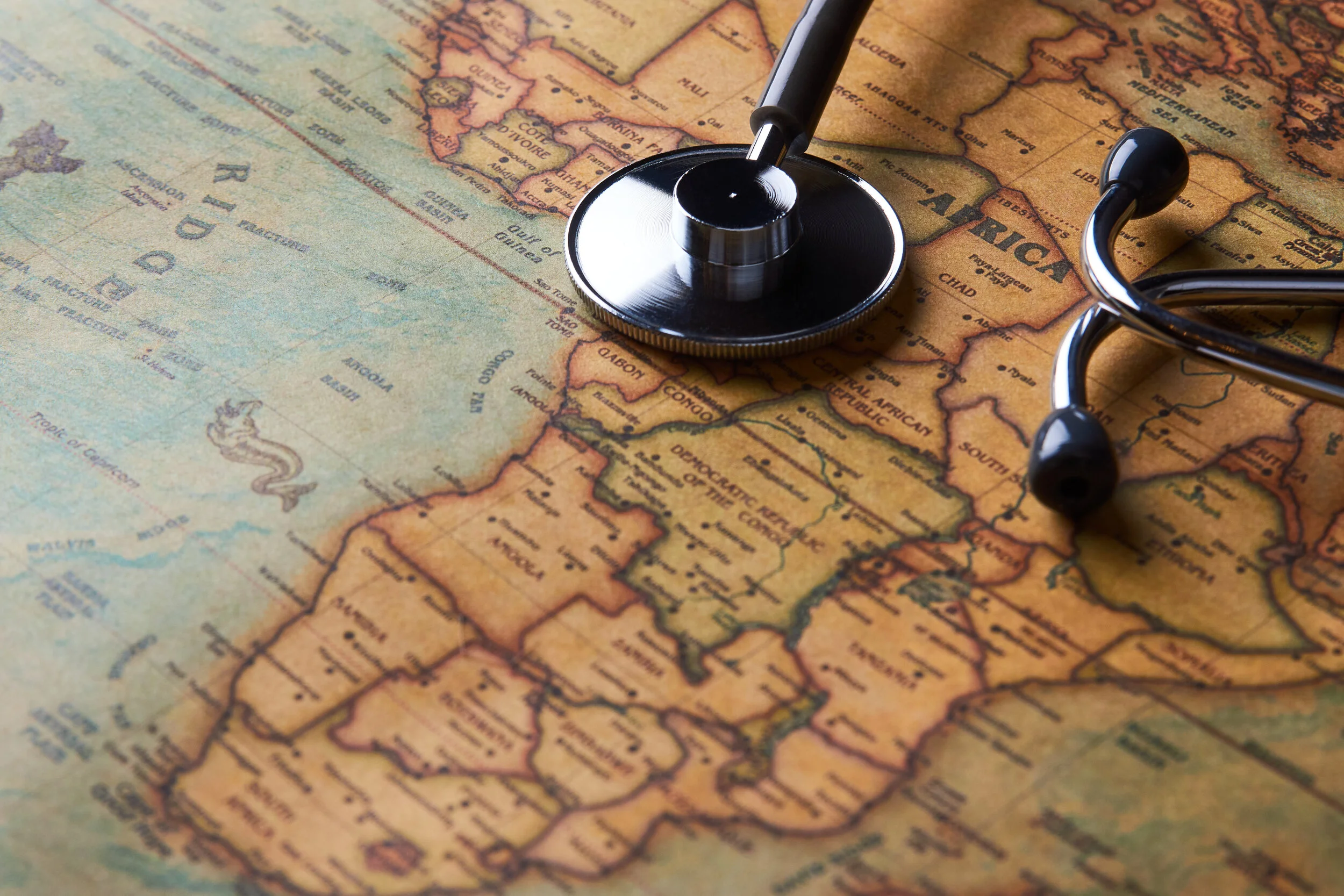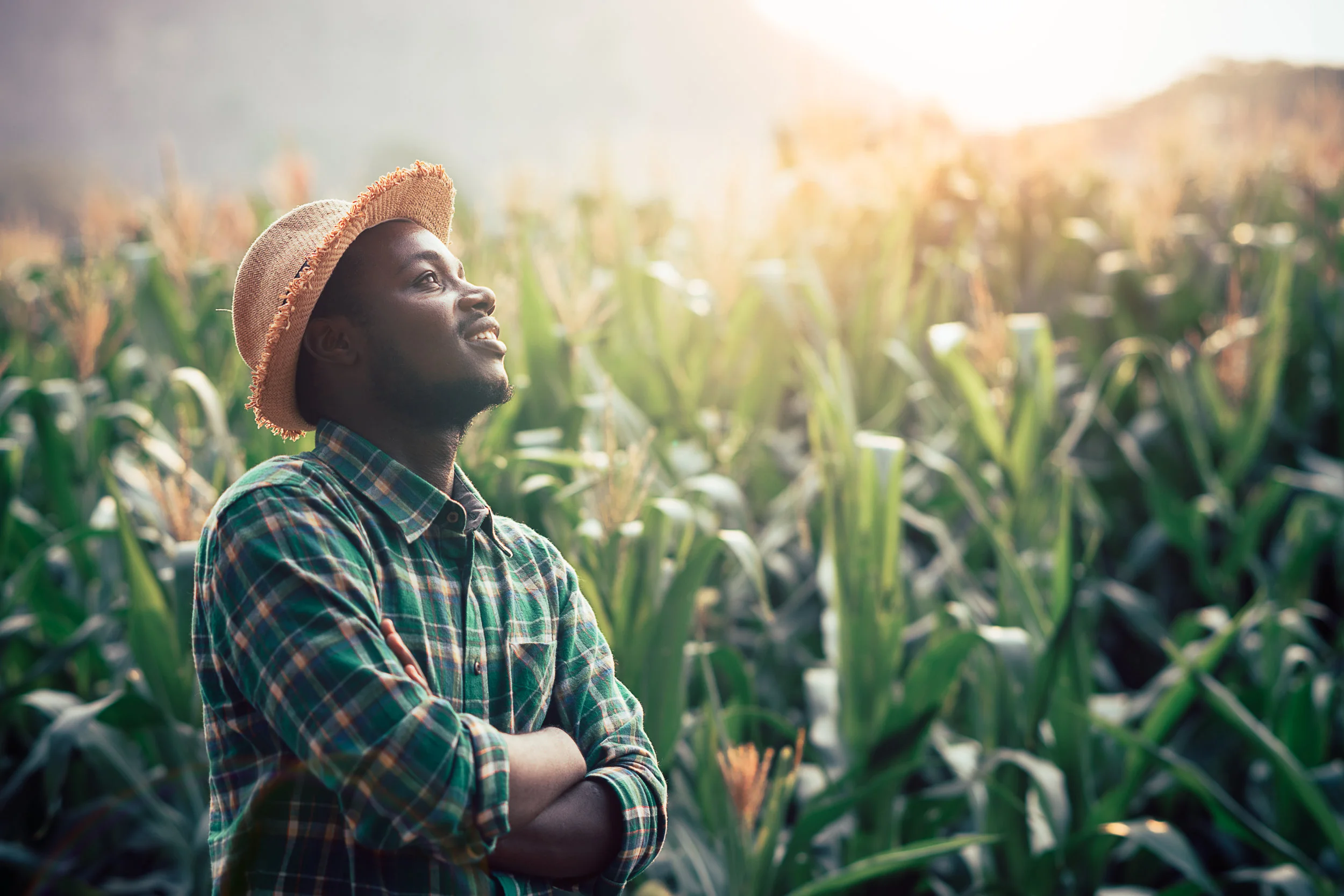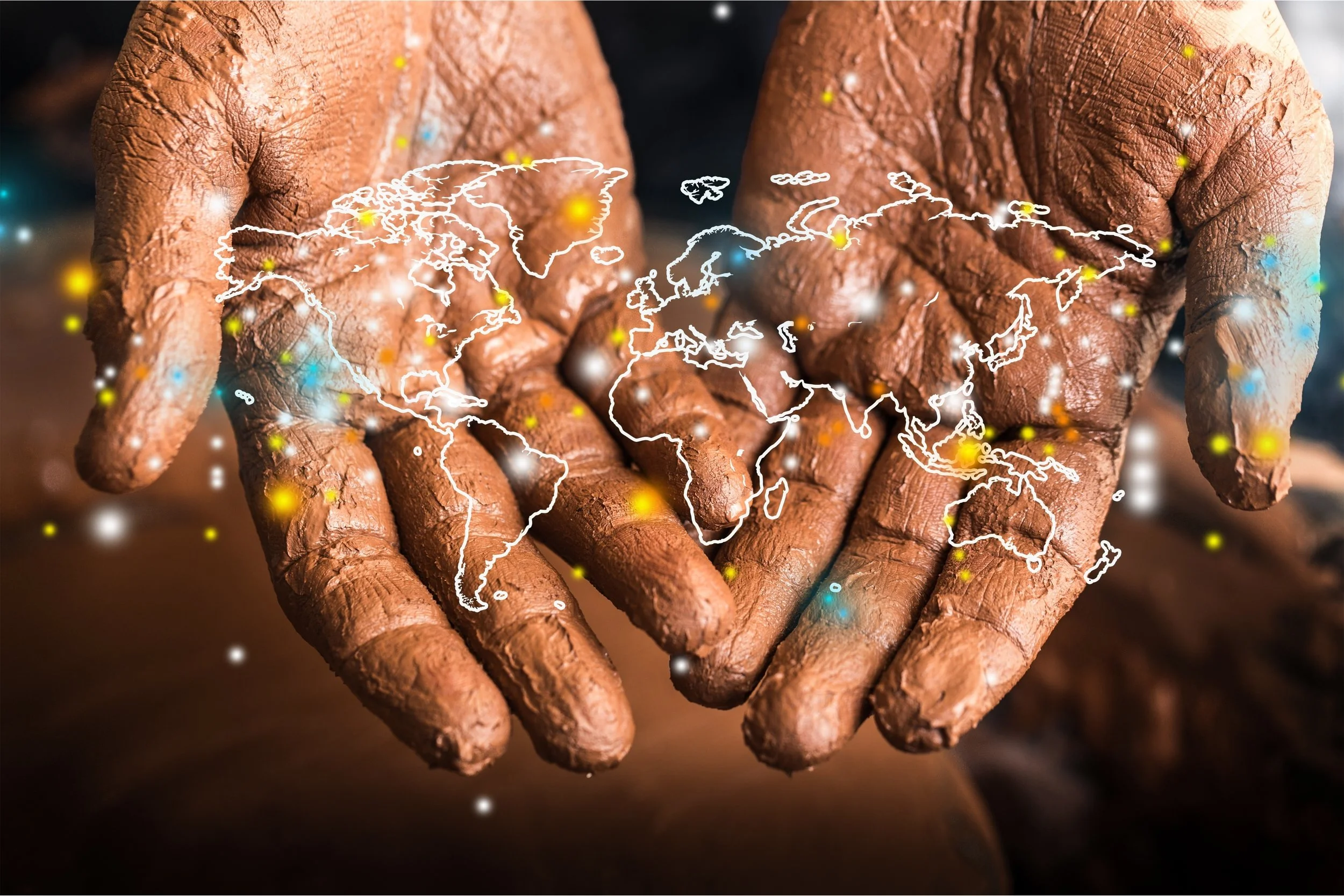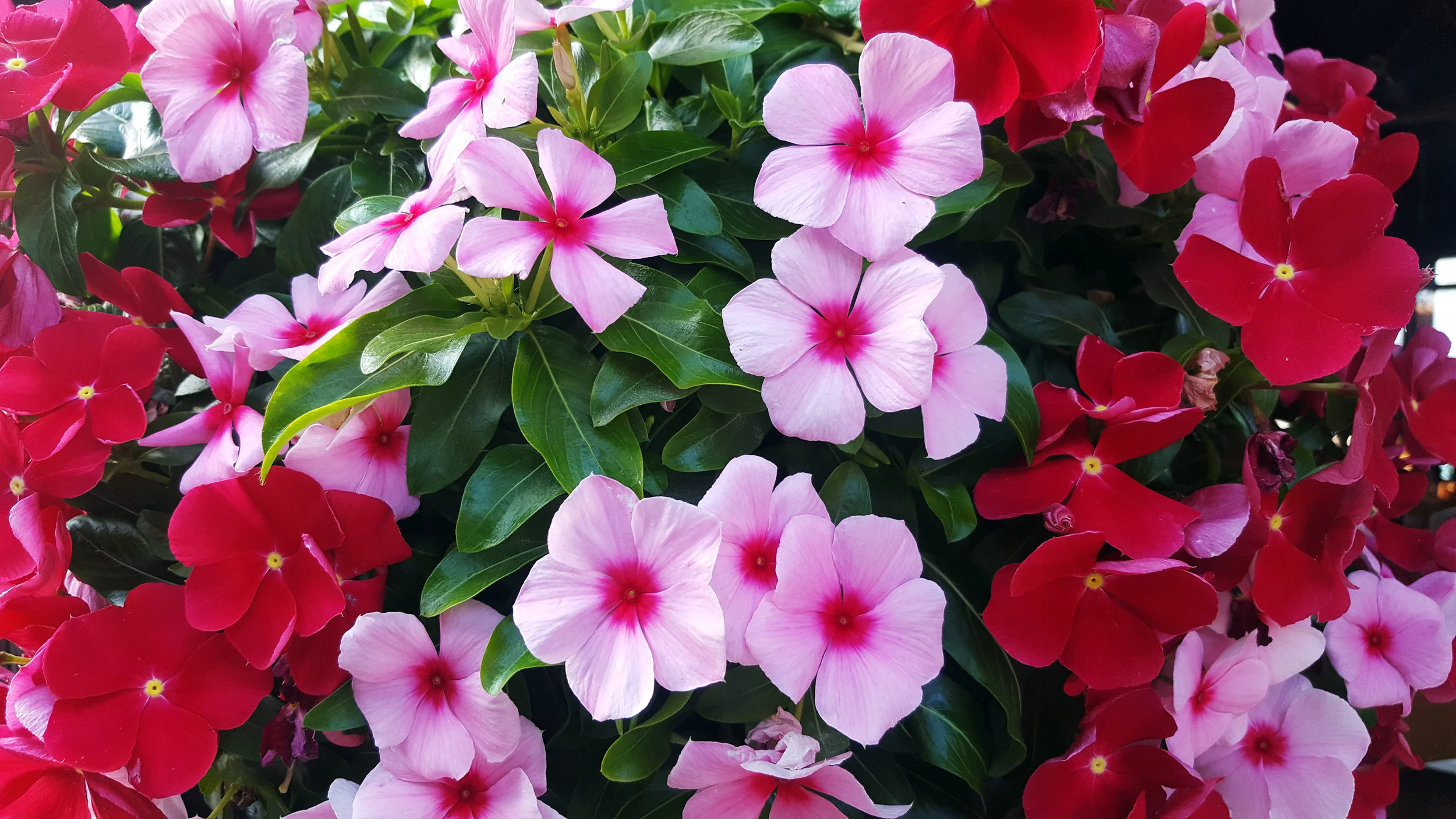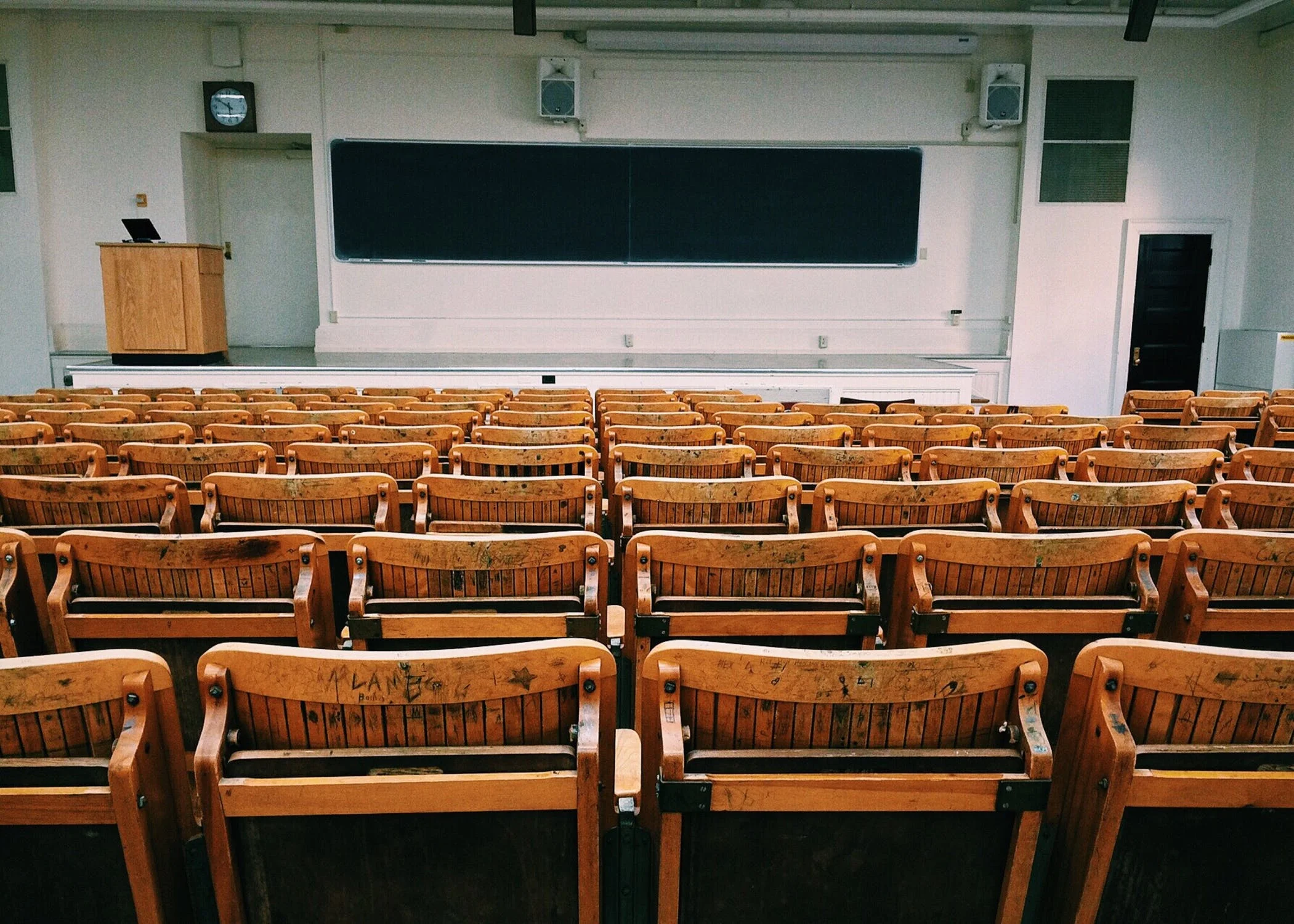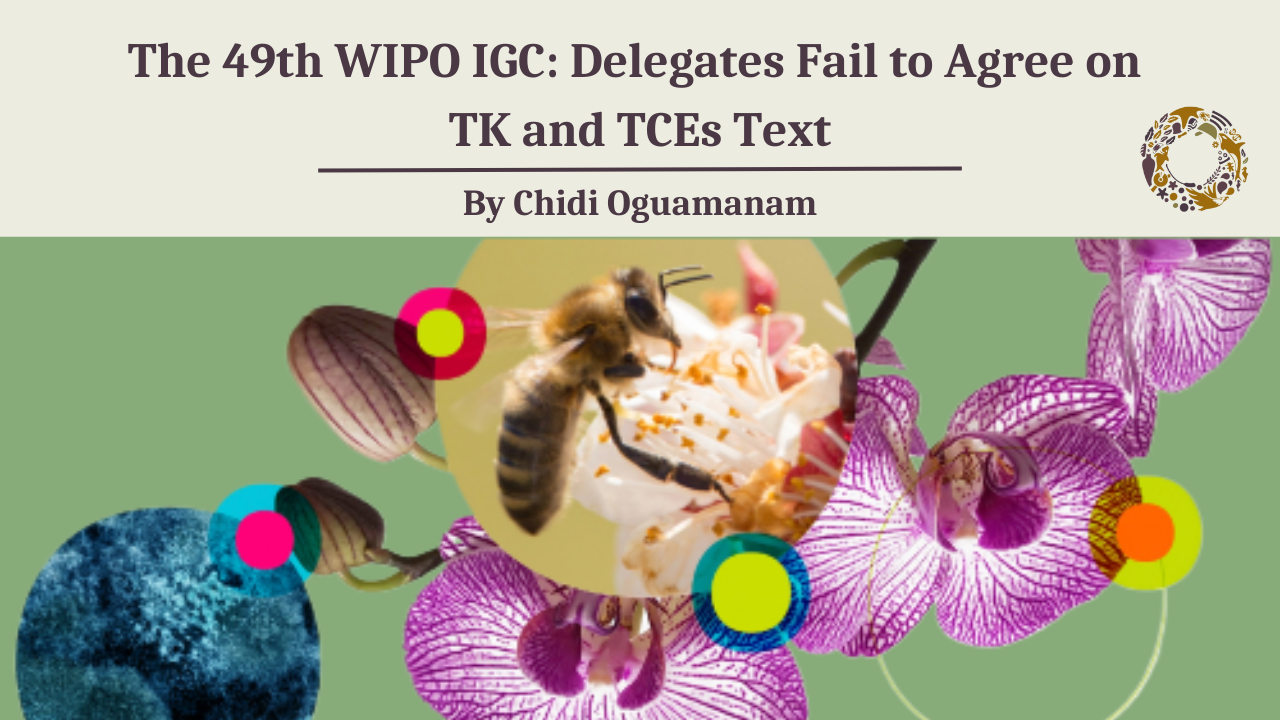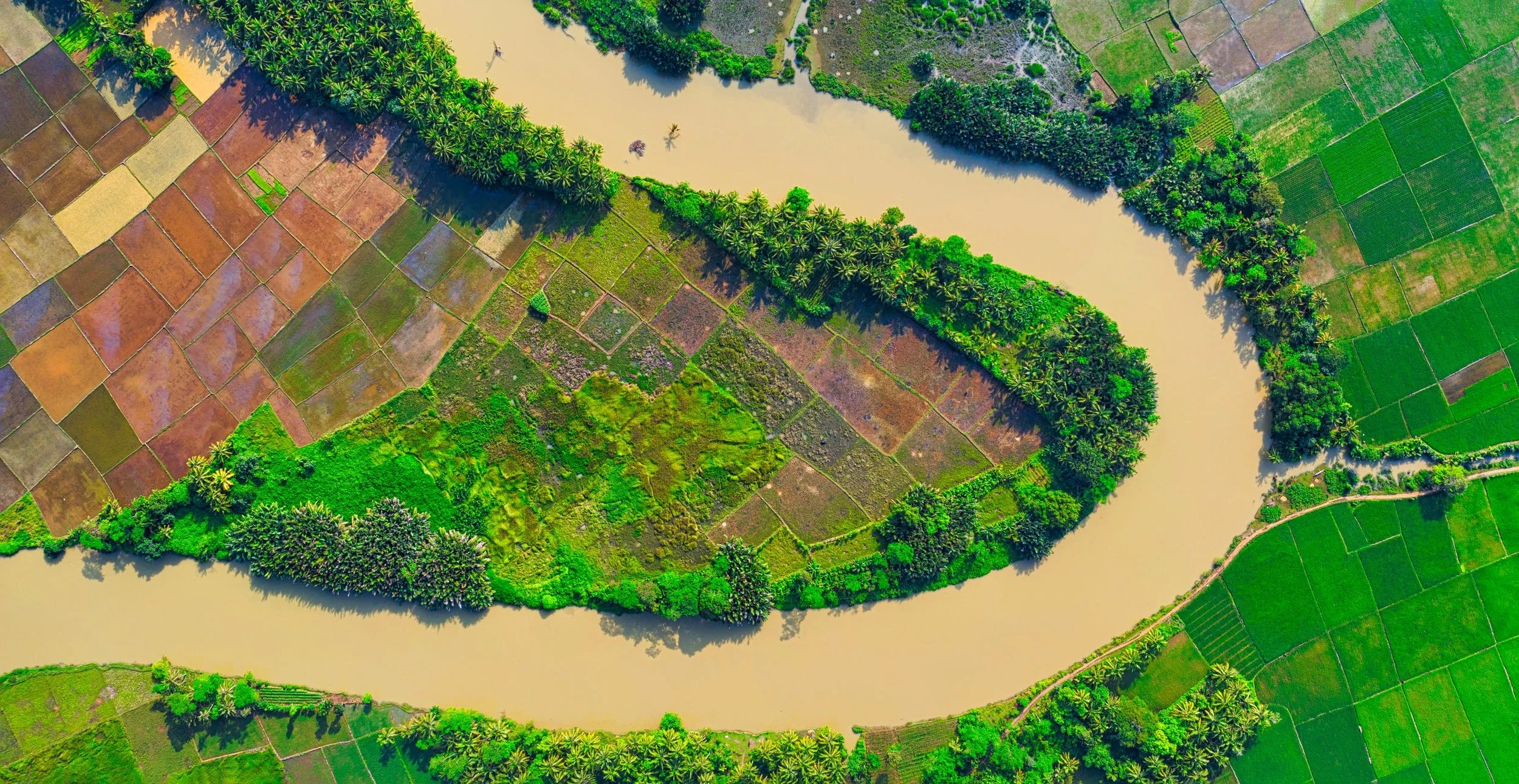Smart Agricultural Technology
Vol. 3 (February 2023)
Open AIR (African Innovation Research) Network
Working Paper No. 24 (2021)
Co-authored with Chika Ezeanya-Esiobu and Vedaste Ndungutse
Open AIR (African Innovation Research) Network
Working Paper No. 14 (2018)
Co-authored w/ Tesh Dagne
Open AIR (African Innovation Research) Network
Working Paper No. 8 (2017)
Co-authored w/ Jeremy de Beer
Open AIR (African Innovation Research) Network
Working Paper No. 5 (2017)
Co-authored w/ Caroline Ncube, Tobias Schonwetter & Jeremy de Beer
Journal of Advances in Agricultural Science and Technology
Vol. 3, No. 6 (September 2015)
Did you know that small farmers’ access to agri-food data can impact food security on a global scale?
Innovation is a vital practice in the knowledge economy. Also vital is finding ways to scale innovations so that they can have significant impact. The Open African Innovation Research (Open AIR) network has collected data in numerous African innovation settings over the past decade, and has, in the process, developed a four-pillar taxonomy of scaling practices. As outlined in its 2020 Scaling Innovation report, which draws on findings from 10 African countries, Open AIR has found that scaling by the continent’s knowledge-based enterprises can best be understood in terms of four overlapping dimensions: expanding coverage; broadening activities; changing behaviour; and building sustainability.
Nigeria’s booming film industry, colloquially known as Nollywood, has become one of the most influential in the world, and one of Nigeria’s largest economic sectors. University of Ottawa Professor Dr Chidi Oguamanam, working as part of the Open African Innovation Research (Open AIR) network, examines Nollywood as an example of how innovation, openness and entrepreneurship have unfolded in this unique context. Relying on extensive data collection, including in-depth interviews with key players in the industry, Oguamanam traces Nollywood’s origins and demonstrates how its persistent openness—to local popular culture, to myriad modes of marketing, to both formal and informal skills development, to Nigeria’s multiethnic realities, and to various approaches to intellectual property—have all contributed to its success at local, national, continental and global levels.
On Feb. 21, 2021, Israel introduced “green passes” – evidence of COVID-19 vaccination or presumed immunity after recovery from the disease. This form of certificate is called by several other names, most notably immunity passports. According to the global vaccine alliance GAVI, “an immunity passport is an official document that certifies an individual has been infected and is purportedly immune from SARS CoV-2.”
Africa’s fate is precarious in the face of COVID-19. It is the last continent to be affected by COVID-19 following the arrival of the contagion in Egypt and Nigeria in February 2020. Ideally, the late arrival of COVID-19 in Africa could have bought the world’s poorest and politically susceptible continent an advantage. However, a combination of unpreparedness and the severity of COVID-19’s impact left Africa with no such advantage.
Except perhaps South Africa, credible statistics on the extent of the COVID-19 infection in African countries are lacking. So far, African countries could not sustain two full months of lockdown. Unlike the rest of the developed world, there were no significant palliatives for ordinary citizens, let alone businesses or corporations. While industrialised countries compute their GDP contraction arising from COVID-19 in the range of 10%, virtually all of Africa is faced with the stark reality of an upward of 20% drop in their GDP and a total rollback of economic progress of the past two decades.
As an African and a Canadian, I inhabit an observatory. I am a resident in two worlds of blunt contrasts. On a good note, daily at every turn, those contrasts offer privileged lessons on the richness and complexity of the human experience, of our world. In this observatory, it is irresistible not to have a geopolitical perspective on the dynamic of Africa’s relationship with the global south. And since the formal declaration of COVID-19 as a global pandemic on March 11, 2020 by WHO’s Dr. Tedros Adhanom Ghebreyesus, the reality of that stark contrast has never been more evident.
The Third Industrial Revolution (3IR) provided perhaps the most significant insights into Africa’s potential to fast-track its march to sustainable development. As with industrial revolutions, the 3IR has further tinkered with international division of labour. Gradually, Africa and indeed economies hitherto considered as periphery – so-called because they were traditional sources of raw materials – are now actors in knowledge-driven competition, which is the hallmark of the 3IR.
The third industrial revolution (3IR) provided perhaps the most significant insights into Africa’s potential to fast-track its sustainable development. As with previous industrial revolutions, the 3IR has affected the international division of labour. Gradually, Africa and a number of economies on the periphery – so described because they were traditional sources of raw materials – have become actors in a knowledge-driven competition, which is the hallmark of the 3IR.
On June 10, 2019 the Honourable Chief Judge of Lagos State, Madame Justice Opeyemi Oke, would have attained mandatory retirement age of 65 years. She served in acting capacity from September 25, and was sworn in as Chief Judge on October 20, 2017. Her tenure is exactly 21 months which tallies with the tradition of an average of barely 12 months over a 10-year period for successive Chief Judges of Lagos State. For judiciary watchers and stakeholders in the administration of Justice, Oke’s tenure had no dull moment.
Africa is continent of 55 countries and thousands of nationalities with incredible human and cultural diversity. In addition to its wealth of incredible diversity, Africa is the youngest and fastest growing continent. How can the continent harness this incredible potential which could readily flip into unprecedented tragedy if not well-managed? That is the big question for the future of Africa. That future is at the intersection of strength and a ticking time bomb.
As it embarks on another five-year periodic review of the Copyright Act, Canada has an opportunity to reflect on its copyright regime in light of the gaps that exist between it and Indigenous creative works. Indigenous creative works refer to myriad forms, manifestations, or expressions of Indigenous cultural heritage and identity, ranging from stories, folklore and songs, to dances, rituals, symbols, protocols and practices. These collectively link Indigenous peoples with their land, ecological orientation and worldviews, as well as their past, present, and future.
One of the off record welcome hospitality that the Conservative Prime Minister of Britain, Mr. David Cameron, extended to President Muhammadu Buhari who attended the May 10 Anti-Corruption Summit in London is his sneaky remark to the British monarch, Queen Elizabeth II, ahead of that summit that Nigeria (alongside Afghanistan) is a “fantastically corrupt” country. My impression is that Her Majesty may have a better sense of history than Cameron.
Forging national unity has been a perennial challenge to Nigeria’s evolution as a country. Since independence from Britain 56 years ago, the country continues to weather severe existential storms that strike at its very core. These make national cohesion and political stability largely elusive.
Nigeria’s security challenges continue to escalate. While the Boko Haram insurgence keeps mutating, kidnappings and hostage taking for ransom rise in competition as side dishes in the main course of the country’s ignominious rise in terrorism profile. Yet, the abducted Chibok girls remain a scar on the conscience of the Nigerian government at all levels. At present, Nigeria’s abysmal human rights record is taking another stress at the instance of recent violent encounter between members of the Shiite Islamic sect and the military.
The global South is full of significant, diverse biological and genetic resources. It’s also home to most of the world’s indigenous communities. This is why developing countries are sensitive about protecting their genetic resources and traditional knowledge.
Nigeria’s tertiary education industry is increasingly competitive for all stakeholders. We have transitioned from the so-called first; second, third and, some would even suggest, to fourth generation universities. Except for professional bodies, both the federal and state governments have, until more than a decade ago, been the only major proprietary stakeholders in tertiary education.
Toronto has been in the news recently, not because of its status as a foremost North American commercial hub, but because of its infamous mayor, Rob Ford. Ford has been on the limelight for many wrong reasons, serving as a butt of joke for global fraternity of comedians on how not to be a mayor. Over 2013, many mentioned how discussions involving Canadians within and without Canada are easily short-changed by a more exciting topic: Mayor Rob Ford and his indiscretions.
In the last decade, warlordism has been on the decline in Africa. But terrorism and other forms of political combustion appear to be on the rise. Recent and ongoing disturbances across the continent are flashpoints of both Africa's political vulnerability and the continent's political renewal. As Africa engages its current positive, albeit, controversial economic transition, the tail of its political contradictions within a hypocritical world order continues to wag the continent.
On August 15, 2008 members of the African Diaspora Communities in the Maritime Region of Canada woke up to the shocking news of the death of one of their own, Ms. Ifeoma Stella Obi. Ifeoma was a Nigerian by birth who, like most members of her African circle of friends in Canada, migrated to that country in search of quality education.
The Niger Delta: Nothing places Nigeria in the news lately more than the Niger Delta. Indeed, the Niger Delta is synonymous with the instability that Nigeria contributes to global oil supply and, by extension, the current global energy crisis. The Niger Delta now attracts some worrisome lexicon in the global report of news about Nigeria.
The emergence of Governor Ikedichi Ohakim of Imo State is one of the litanies of surprises in the last discredited general elections. In the period preceding the elections, Imo State was a theatrical site for the absurd.
Many have the impression that this President is not overly excited about the idea that Nigeria’s dream of transformation can be entrusted in the hands of its younger generation. If clues from the first term of this presidency are guide, there is enough support for this perception. It is not news that the President is more comfortable with and trusting of folks around his age bracket.
In the past two weeks, in this column, I serialized a two part commentary on the Anambra and Plateau crises and other incidental issues on the state of the Nigerian nation. My article was titled “Ngige, Dariye and the Presidency: The Morality of the Absurd” (part I-November 30, part II December 6). In this effort, I will not repeat, but would rather recommend for background reading, what I wrote then.
On Plateau State, yes, the President may be right in questioning the morality of Governor Dariye’s continued stay in office. However, while the President would prefer that Governor Dariye resign as a matter of honour or be impeached by the House of Assembly, that is not as simple as it seems. Law and morality are not always harmonious bedfellows.
In 1999, while responding to a suggestion that a lot of retired generals and other political jobbers were making monetary donations to his bid for the presidency and as such would naturally expect to be rewarded, or to wield some influence in his prospective regime, Mr. President (then a presidential candidate) was on record to have said that there will be no room for that kind of politics if he was elected.
However the courts resolve the pending litigations on the constitutionality of the declaration of state of emergency in Plateau State six months ago, the place of that singular decision of the Obasanjo administration is firmly secured in Nigeria’s constitutional and political history.
Again, let me say that I am not readily inclined to draw simplistic comparisons between Nigeria’s political culture and what obtains in long established western democracies. Yet, it borders on the irresistible to, at least, contemplate how much our politicians and so called leaders at different levels of public service get away with. Just a casual reference to a different political culture elsewhere could serve my purpose here.
After one week of deliberations from March 3-7, the 50th WIPO-IGC failed to negotiate a new instrument for the protection of traditional knowledge and traditional cultural expressions. The work will continue at the 51st session in May 2025.
At resumed negotiations on TK and TCEs Texts, WIPO member states missed an opportunity to leverage the momentum created by two new treaties this year.
In Geneva: experts, diplomats and many stakeholder delegations have resumed negotiations at the WIPO Intergovernmental Committee (IGC) on Intellectual Property and Genetic Resources, Traditional Knowledge and Traditional Cultural Expressions.
Over two decades of negotiations have climaxed in the birth of a new treaty in the early hours of May 24, 2024, in Geneva, Switzerland at the WIPO 2024 Diplomatic Conference on Genetic Resources and Associated Traditional Knowledge.
The WIPO Diplomatic Conference on Genetic Resources (GRs) and Associated Traditional Knowledge (ATK) is now on its second week (since May 13, 2024). We are pleased to provide an update in continuation of our first report.
The first two days of the World Intellectual Property Organization (WIPO) Diplomatic Conference on Genetic Resources and Associated Traditional Knowledge kicked off on a generally positive note.
As experts and top diplomats count down to the WIPO Diplomatic Conference in Geneva, Switzerland (May 13-24, 2024) in a final push to birth a treaty on Genetic Resources (GRs) and Associated Traditional Knowledge (ATK), we at Access and Benefit Sharing Canada reflect on the anticipated outcome of the historic meeting, tampering expectations and offering some clarification.
With the WIPO Diplomatic Conference on Genetic Resources and Associated Traditional Knowledge approaching, the National Congress of American Indians is prepared to advance its position so that Indigenous Peoples’ rights and interests are included in the final stages of negotiations.
Reflections on the host country for the WIPO 2024 Diplomatic Conference on Intellectual Property, Genetic Resources and Traditional Knowledge Associated with Genetic Resources.
Prior to European contact, Indigenous Peoples of what later became Canada lived in communities with a diversity of political systems, legal traditions, and laws. These Indigenous legal orders guided how First Nations conducted commerce, maintained peace, and negotiated treaties. Recognized by the Supreme Court of Canada, these traditions have become a part of the Canadian legal landscape.
Between February 27 and March 3, 2023, delegates and experts are reconvening in Geneva for the 46th session of the World Intellectual Property Organization’s Intergovernmental Committee on Intellectual Property and Genetic Resources, Traditional Knowledge and Folklore (IGC 46). The IGC 46 is the penultimate of four sessions exclusively dedicated to “undertake[ing] negotiations on TK and/or TCEs with a focus on addressing unresolved and cross-cutting issues and considering options for a draft legal instrument(s)”. Earlier negotiations on the TK/TCEs text were undertaken pursuant to IGC 44 and 45, and will be further explored finally in the 2022-2023 biennium at the IGC 47 slated for June/July 2023. IGC 47 will also include stocktaking and making recommendations on the subject of TK/TCEs for the 64th WIPO General Assembly in October 2023.
Buoyed by the July 2022 WIPO 62nd General Assembly decision that endorsed a Diplomatic Conference on Genetic Resources (GR) and Associated Traditional Knowledge, delegates to the 45th Intergovernmental Committee (IGC) continued negotiations on the TK and TCEs texts. On December 5-9, 2022, negotiations on the two subject matters continued from the September 12-16, 2022 44th IGC. It is second of the series of negotiations to focus on TK/TCEs. At the 44th IGC, delegates took unofficial notice of the new Chair’s, Ms. Lillyclair Bellamy (Jamaica), determination to take a cue from the immediate past Chair, Ian Goss (Australia) to generate a Chair’s TK/TCE text to advance progress on TK/TCE negotiations. This decision, which did not come as surprise to delegates, has potential to replicate Goss’ experience of the Chair’s GR text based on which the 2024 Diplomatic Conference is being convened.
Professor Chidi Oguamanam has been named to the University of Ottawa's University Research Chair in Sustainable Bio-Innovation, Indigenous Knowledge Systems and Global Knowledge Governance. Research Chairs represent the University's top researchers and recognize their outstanding and important accomplishments.
May 30-June 3, 2022: Delegates met in-person and virtually at the World Intellectual Property Organization (WIPO) in Geneva to resume the second round of negotiations for the 2022-23 biennium of the WIPO Intergovernmental Committee on Intellectual Property and Genetic Resources, Traditional Knowledge and Folklore (WIPO-IGC). The meeting being the second in the ‘post-pandemic’ era was dedicated to negotiations on genetic resources. It was the last meeting on the subject under the 2022-2023 biennium. The remaining meetings of the Committee for the biennium are dedicated to Traditional Knowledge and Traditional Cultural Expressions (aka folklore).
Indigenous peoples all over the world have adverse relationships with research and researchers. Historically, research involving Indigenous peoples is conducted at the intersection of colonialism and asymmetrical power relations amongst researchers, industries, colonial states, and other stakeholders. The importance of research in shaping the policy agenda for development, access to health, basic infrastructure and for the empowerment of communities for self-determination is not lost on Indigenous peoples. Indigenous peoples and many other local and marginalized communities have been proverbial guinea pigs for researchers, being ‘used’ as research subjects whose rights were abused without consequences. Regarded as docile subjects, their voices were hardly heard, making them one of the most researched and yet underrepresented demographics in research.
On February 14th 2022, Newfoundland and Labrador Premier Andrew Furey announced the signing of term sheets for a $1-billion federal investment and a $1-billion federal loan guarantee for the Muskrat Falls Project. This is the third such guarantee the federal government has backed in respect of the project. It marks the completion of the negotiation process for the deal. Premier Furey labelled the deal “the next step for all of us to emerge from under the dark shadow of Muskrat Falls.”
February 28-March 4, 2020: Delegates met virtually and in-person at the World Intellectual Property Organization in Geneva to resume the first round of negotiations for the 2022-23 biennium of the WIPO Intergovernmental Committee on Intellectual Property and Genetic Resources, Traditional Knowledge and Folklore (IGC). The meeting was in continuation of more than two-decades of work, most of which has been dedicated to negotiations of legal instrument(s) for the protection of traditional knowledge (TK) traditional cultural expressions (TCEs) and genetic resources (GR).
The impacts of climate change are wide-ranging and global, with examples ranging from increased wildfires, food insecurity due to poor crop yield, and forced migration following rising sea levels, droughts, and other abnormal precipitation. In the face of these changes, Indigenous peoples and communities are heavily impacted through changes in lifestyle and knowledge. However, Indigenous peoples and Indigenous traditional knowledge (ITK) may hold part of the important keys to fighting climate change for the benefit of the planet.
As the vaccination rate rises in Canada and other developed nations, developing countries globally continue to record an upsurge in daily infection and death rates due to COVID-19. Prime Minister Justin Trudeau recently confirmed that Canada is involved in the World Trade Organization’s (WTO) exploration of the Indian and South African proposal to waive intellectual property (IP) rights for COVID-19 vaccines. In a break from tradition, United States President Joe Biden has lent his country’s support to the initiative, amidst reluctance to do the same from the EU. However, Canada remains ambivalent.
Canada lacks a comprehensive federal Access and Benefit-Sharing (ABS) system for governing genetic resources and the associated traditional knowledge of Indigenous peoples, despite years of advocacy. While there is currently an interdepartmental committee on ABS at the federal level that collaborates with provincial and territorial jurisdictions and a lot more diverse initiatives related to ABS, little progress has been made.
“Dealing with health and economic challenges of Covid-19 has made one point abundantly clear for African countries – that we need broadband, faster, cheaper and expanded to the last mile of the populations”. This observation credited to UN Under Secretary-General and Executive Secretary of the Economic Commission for Africa, Ms. Vera Songwe has never rung truer than in these unprecedented times. Leveraging technology to assist African countries in the fight against Covid-19 is imperative to finding effective solutions for containing the virus in an economically feasible manner for Africa, taking into consideration the continent’s technological infrastructure.
Medical racism against Indigenous peoples is a fact in the Canadian healthcare system. As a direct result of this experience, many Indigenous peoples lack trust in the healthcare system, and they limit their engagement with the system as much as possible. This has caused many detrimental impacts on Indigenous peoples, and the ongoing COVID-19 pandemic has highlighted an area of key concern – vaccine hesitancy within Indigenous peoples.
With the world on edge as the COVID-19 crisis progresses, the scientific community has sprung into gear in search of an effective treatment. R&D is progressing at unprecedented speeds, abridging the projected length for the completion of a vaccine from over a decade to just over a year. Amidst this rapid development, traditional knowledge plays a significant role in scientific endeavours. Through traditional knowledge, medical researchers can gain guidance and inspiration and bypass prolonged and expensive scatter-gun approaches to R&D.
In the midst of the COVID-19 pandemic, the world continues to overlook the epidemic raging on in some of the poorest regions of Africa since 2013: the Ebola outbreak. The Ebola virus is a severe disease with a death rate of up to 90% in humans. The virus was first identified in 1976 with two simultaneous outbreaks; one in the Yambuku village in the Democratic Republic of the Congo (DRC) and the other in a remote area of Sudan.
The COVID-19 pandemic is undoubtedly having an effect on the human population around the world, but its impact on the environment, especially in terms of conservation, is less publicized. The Amazon rainforest is the world’s largest rainforest. According to scientists, its preservation is vital to combat global warming. However, illegal logging practices continue to jeopardize the integrity of the rainforest at this time.
As an African and a Canadian, I inhabit an observatory. I am a resident in two worlds of blunt contrasts. On a good note, daily at every turn, those contrasts offer privileged lessons on the richness and complexity of the human experience, of our world. In this observatory, it is irresistible not to have a geopolitical perspective on the dynamic of Africa’s relationship with the global south. And since the formal declaration of COVID-19 as a global pandemic on March 11, 2020 by WHO’s Dr. Tedros Adhanom Ghebreyesus, the reality of that stark contrast has never been more evident.
The triumph of capitalism and its impact, post-cold war, is manifest in diverse ways and sites in the global south, especially Africa. Perhaps the most prominent consequence of the post-cold war capitalist strangle-hold is the phenomenon of globalization. In its legal and economic gradient, globalization has yielded unprecedented spate of legal harmonization and capitalist structuring, opening up of markets under the trade liberalization mantra.


